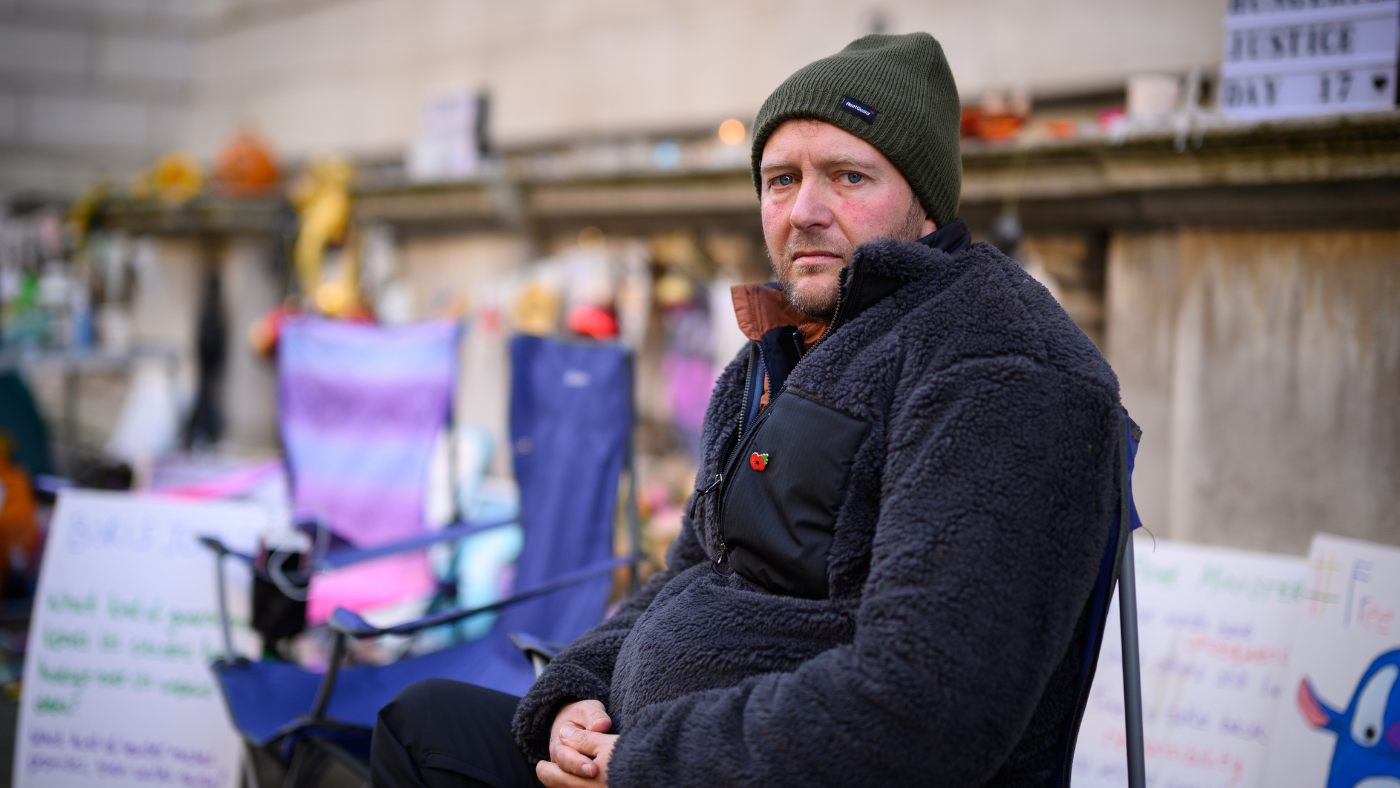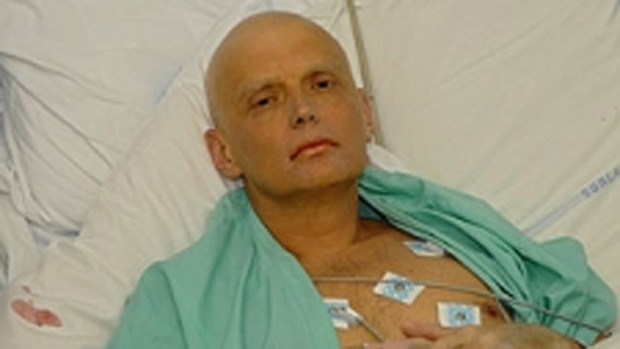Berezovsky, Agatha Christie and a short history of poison
A poison that does its work and leaves no trace in the body is not as far-fetched as you might think

A free daily email with the biggest news stories of the day – and the best features from TheWeek.com
You are now subscribed
Your newsletter sign-up was successful
A FORMER French Foreign Legion bodyguard found Boris Berezovsky, the 67-year-old Russian oligarch who fled to the UK in 2000 after falling out with President Putin, dead in a locked bathroom at his home in Ascot on Saturday.
Berezovsky had been due to give evidence at the inquest next month into the death of his protégé Alexander Litvinenko, the former KGB and MI6 agent who was murdered in 2006 after radioactive Polonium was slipped into his tea.
Specialist officers in chemical, biological, radiological and nuclear substances (CBRN) attended the scene at Berezovsky's home immediately and have since given the house the all clear. Thames Valley Police have said that the circumstances are "unexplained", but there are no signs of "third party involvement". The post-mortem is expected to include cutting-edge and expensive toxicology tests, in case he was poisoned.
The Week
Escape your echo chamber. Get the facts behind the news, plus analysis from multiple perspectives.

Sign up for The Week's Free Newsletters
From our morning news briefing to a weekly Good News Newsletter, get the best of The Week delivered directly to your inbox.
From our morning news briefing to a weekly Good News Newsletter, get the best of The Week delivered directly to your inbox.
Are Russian assassins loose in the UK, ask many of the newspapers - once again? But is that the right question? Should the authorities be much more routinely conscious of the possibility of poison – not just when Russian oligarchs are involved?
In his 1946 essay Decline of the English Murder, George Orwell mourned (slightly tongue-in-cheek) the end of "Our great period in murder, our Elizabethan period, so to speak…" - when murders were usually carefully planned and often used poison.
Orwell was certainly right to identify the rise of the casual murder - we have become inured to them in modern life - but was he right about the decline of poison?
An early 20th Century poisoner needed quite a lot of poison to kill. The lethal dose for a grown man of cyanide or arsenic is about 200 milligrammes – a bit less for strychnine. (Just 4.4 mg of Cobra venom will do the trick but it has to be injected into the blood stream.)
A free daily email with the biggest news stories of the day – and the best features from TheWeek.com
Modern toxins, poisons produced by bacteria such as botulism, are lethal at 0.2 mg – the same weight as a grain of salt. Even when the chemical composition of a poison is known it can be very difficult for forensic scientists to detect in these minute quantities.
And poisons are becoming more sophisticated all the time. For instance, most present-day rat poisons work in two rather clever stages – one fast- acting chemical component makes the rat thirsty so it leaves the house or barn in search of water. A second, slightly slower-acting chemical, then finishes the creature off outside so that its decomposing corpse isn't trapped inconveniently behind the Aga.
The ultimate goal for a poisoner is to perfect a poison that does its work and then leaves no trace in the body afterwards. Not as far-fetched as you might think. Look at the success of doping in sport. Lance Armstrong, who was stripped of his seven Tour de France titles last year and banned from competitive cycling for life for taking performance enhancing drugs, got the all-clear from over 600 drugs tests during his career.
It is very easy for us to dismiss poisoning as a nasty foreign habit indulged in by foreigners like the Borgias, or the successors to the KGB. But there is a strong tradition of poison in the English-speaking world.
A notorious case from the 1970s illustrates the point well: Graham Young the so-called 'teacup killer' killed four and poisoned more than 70 other people in Bovingdon, a small Hertfordshire village, with the heavy metal thallium. He would have got away with it if the local GP hadn't by chance read Agatha Christie's book The Pale Horse in which Miss Marple encounters the symptoms of thallium poisoning.
Across the Atlantic, poison has been present since the founding of the Republic. In the summer of 1776 General George Washington narrowly escaped assassination by a group of Loyalists who put poison in a dish of his favourite green peas.
The US Secret Service still fears poison. All food destined for the table of the President of the United States is carefully controlled and checked. President Clinton famously had a sense of humour failure in his first weeks in the White House when his security detail would not allow him to share pizzas ordered in by his staff for late-night brainstorming sessions.
There is a curious anomaly in the death statistics for most Western countries. Poisoning (including drugs overdoses) is the second most popular method for people to commit suicide. And yet we are led to believe it has become a very unusual way to commit murder.
I wonder if we aren't missing something, especially as those cases of poisoning that do come to light are often discovered because of some chance suspicion or unusual coincidence - as in the case of Graham Young, above. Remember, it wasn't the police or forensic science standing between the good people of Bovingdon and mass murder on a shocking scale - it was Agatha Christie.
-
 How the FCC’s ‘equal time’ rule works
How the FCC’s ‘equal time’ rule worksIn the Spotlight The law is at the heart of the Colbert-CBS conflict
-
 What is the endgame in the DHS shutdown?
What is the endgame in the DHS shutdown?Today’s Big Question Democrats want to rein in ICE’s immigration crackdown
-
 ‘Poor time management isn’t just an inconvenience’
‘Poor time management isn’t just an inconvenience’Instant Opinion Opinion, comment and editorials of the day
-
 ‘The status quo must change if the government is to bring Nazanin home’
‘The status quo must change if the government is to bring Nazanin home’Instant Opinion Your digest of analysis from the British and international press
-
 Gary Rhodes: five things you didn’t know
Gary Rhodes: five things you didn’t knowIn Depth British chef famous for MasterChef and Hell’s Kitchen dies at 59
-
 Ten famous people with dyslexia
Ten famous people with dyslexiaIn Depth Health Secretary Matt Hancock has revealed he suffers from the learning difficulty
-
 Former Russian tycoon may seek asylum in UK
Former Russian tycoon may seek asylum in UKSpeed Read Outspoken critic of Vladimir Putin has been charged with murder in absentia
-
 What happened to Alexander Litvinenko?
What happened to Alexander Litvinenko?In Depth Sergei Skripal’s apparent poisoning has drawn comparisons with 2006 poisoning of other exiled former Russian spy
-
 Berezovsky 'hanged', but few Russians mourn 'cunning' exile
Berezovsky 'hanged', but few Russians mourn 'cunning' exileIn Depth Post-mortem suggests 67-year-old took his own life but friends insist he would not have committed suicide